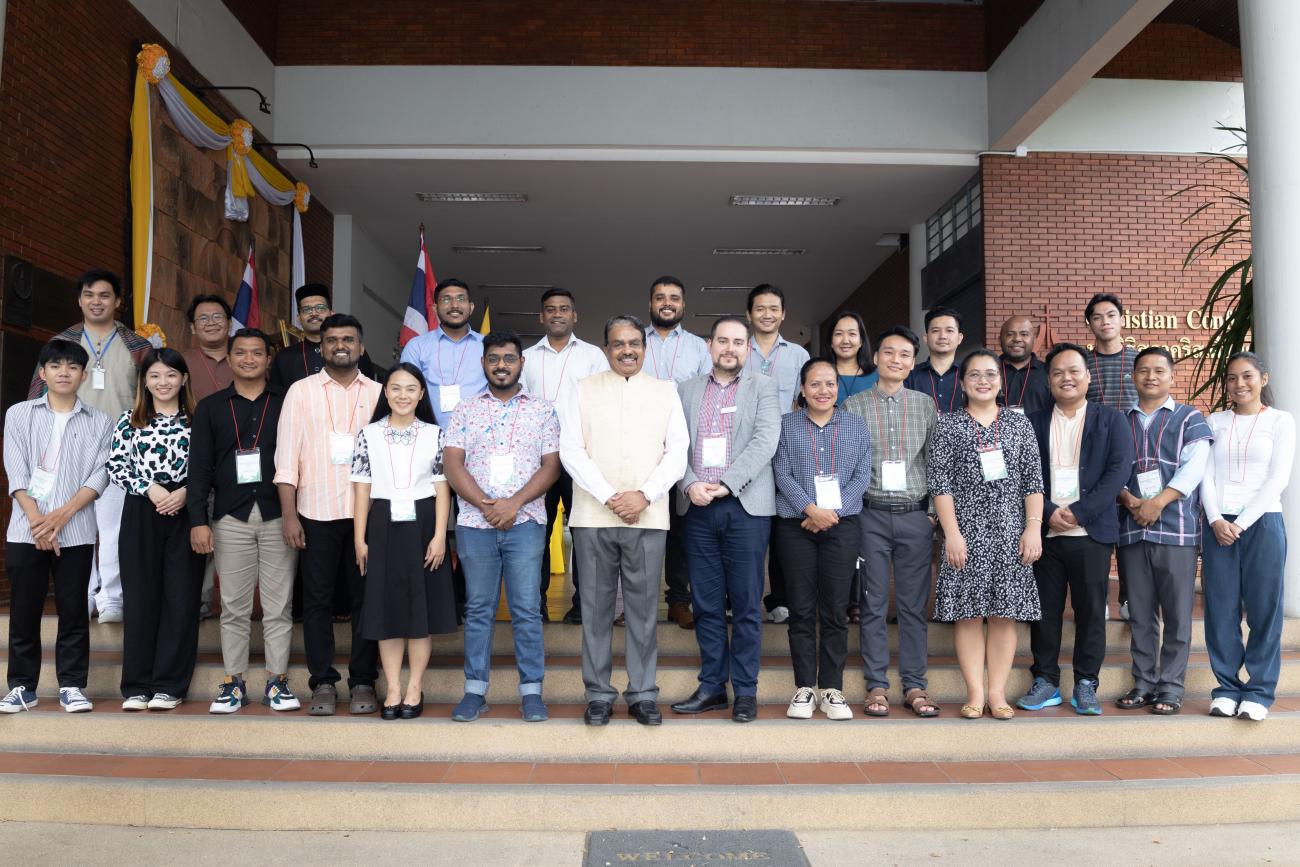Asian Ecumenical Institute (AEI – 2024) commences

Participants of Asian Ecumenical Institute (AEI – 2024)
Chiang Mai, Thailand: The Asian Ecumenical Institute (AEI), organized by the Christian Conference of Asia (CCA) in collaboration with the World Council of Churches, commenced on 22 July 2024 at the CCA headquarters on the Payap University campus in Chiang Mai, Thailand.
Twenty-five young budding ecumenists from across Asia are attending this year’s month-long residential training programme.
The theme of AEI – 2024 is Creation Care and Eco-Justice: Our Faith and ‘With-ness’ and is anchored in the theme of CCA’s 15th General Assembly, God, In Your Spirit, Renew and Restore Your Creation.
The General Secretary of CCA, Dr Mathews George Chunakara, in his opening address welcomed this year’s cohort and expressed his joy in seeing young ecumenists attending the Institute from lesser-represented areas in the Asian ecumenical movement such as Laos, Myanmar, Timor Leste, West Papua as well as representatives from the Mae La refugee camp, one of nine camps along the Thai-Myanmar border housing refugees from Myanmar.
The CCA General Secretary highlighted the unique opportunity that AEI participants receive during the month-long training programme to live, learn, and interact with people from diverse Asian cultures and ecclesial backgrounds, and gain knowledge from some of the best resource persons in different fields.
Since 2016, the CCA has been emphasising and prioritising the Asian Ecumenical Institute, an important component of ecumenical formation in Asia. The AEI has been organised annually since then and several young people have received training. It even switched to a virtual format when the world came to a standstill during the years of the COVID-19 pandemic.
Dr Mathews George Chunakara delivered the first two thematic addresses of AEI titled “Care for the Creation in God’s Oikos” and ‘’Ecumenism, Economics and Ecology”. He provided a comprehensive introduction to the concepts of oikos, oikumene, and care for creation in the oikumene.
The CCA General Secretary also elaborated on the need to nurture sustainable communities in the oikumene, the interconnection of ecumenism, economics and ecology, the importance of upholding the integrity of creation, and the crucial role humans are expected to play as stewards in the oikos to protect and uphold the dignity of God’s creation.
Other sessions that will take place during the month-long training include “God's Redemptive Providence in God's Creation”, “Christian Spirituality and Transformational Leadership”, “Ecumenical Missiology and Grassroots Ecumenism”, “Mission as Peace-Building and Reconciliation”, “Ecumenism and Ecumenical Movement”, “Indigenous Spiritualities and Christian Engagement”, “Good Governance and Integrity Leadership in the Church”, “Christian Women’s Action for Creation Care”, “Posthumanism and Missiological Hope”, among many others.
For more photos, please click here: (Photo Gallery): Asian Ecumenical Institute (AEI – 2024) Opening










